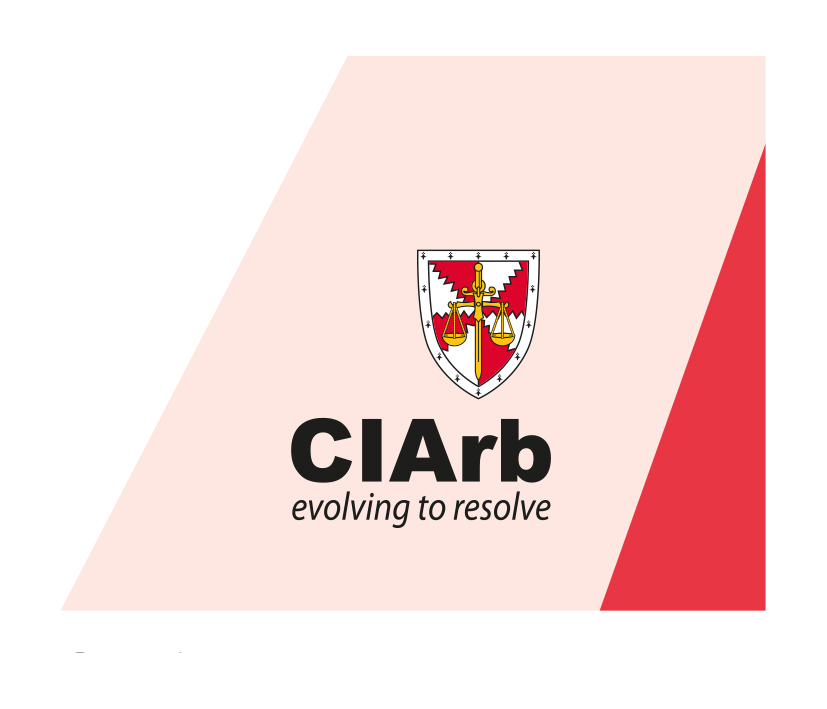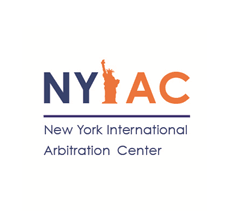Monday 15 April 2019
Grand Hotel Wien
Vienna, Austria
Faculty
Conference Co-Chairs
Grant Hanessian a partner in Baker McKenzie’s New York office, has more than 30 years experience as counsel and arbitrator in disputes concerning investment, energy, construction, commodities, financial services, intellectual property and other matters. He served as global head of Baker McKenzie International Arbitration group from 2008-2015 and head of its North American International Arbitration group from 2003-2018. Mr. Hanessian currently serves as US member of the ICC International Court of Arbitration; chairman of the ICC-USA arbitration committee, US vice president of the LCIA North American users’ council, member of the AAA-ICDR international advisory committee and its advisory committee on Brazil and founding board member of the New York International Arbitration Center. He has edited four books and written more than 40 articles on international arbitration subjects and is annually recommended by Chambers Global and Chambers USA (“very knowledgeable and strategic in his offering of critical advice,” “an elite lawyer,” “very experienced, hugely knowledgeable and effective,” a “powerful advocate for clients”), The Legal 500 (“a great practitioner” with a “strong commercial profile”), PLC’s Which Lawyer?, Who’s Who Legal: Arbitration and Expert Guide to Leading Practitioners in International Arbitration (“best of the best” in international commercial arbitration). Mr. Hanessian is Adjunct Professor of Law at Fordham Law School, where he teaches the International Arbitration Practicum course.
Michael Moser is an international arbitrator with 20 Essex Street Chambers with offices in Hong Kong, Singapore and London. He has served as arbitrator in more than 300 cases cited in Asia, Europe and North America under both ad hoc and institutional rules. He is Honorary Past Chairman of the Hong Kong International Arbitration Centre, a Governing Board Member of ICCA, and a current Board Member of the Singapore International Arbitration Centre and the Vienna International Arbitral Centre. He is the author or editor of many books and articles, including A Guide to the HKIAC Arbitration Rules (Oxford, 2017, with Chiann Bao) and The Asia Arbitration Handbook (Oxford, 2011) and former General Editor of the Journal of International Arbitration.
Program
8:00 – 9:00 Registration Tea/Coffee
9:00 – 10:30 Working Session 1: Initial Organization of the Arbitral Proceeding and Pre-Hearing Activities
Klaus Reichert (Discussion Leader) – Brick Court Chambers
Vladimir Khvalei – Baker McKenzie
Nicholas Pitkowitz – Graf & Pitkowitz
Thomas D. Halket – Halket Chambers
Hillary Heilbron – Brick Court Chambers
Domitille Baizeau – LALIVE
Discussion Topics:
- How important is it that the initial conference be held in person, rather than by telephone? Who should attend the conference? Counsel only? Or parties as well?
- What should be covered in the conference? What should arbitrators request or require that the parties consider, and possibly take positions on in the conference?
- When, if ever, should arbitrators raise the IBA Rules on Evidence? IBA Guidelines on Party Representation? Prague Rules?
- Should arbitrators require disclosure of Third Party Funding?
- Should the tribunal issue an order, or draft order, prior to the conference regarding the conference agenda? What should it contain? Any mandatory provisions? Are there disadvantages in issuing such an order?
- What consideration should be given to possible settlement or mediation, dispositive motions, the parties’ position on damages, including theories of damages, experts to be required, possible bifurcation of proceedings; issues that will be dealt with by experts?
- When is bifurcation appropriate? Should arbitrators always defer to parties joint requests for bifurcation? Are there circumstances in which requests for partial awards should not be entertained? Are oral hearings always necessary with respect to requests for partial awards?
- To what extent should terms of reference be specific as to issues to be dealt with in the case? What are best practices for making these documents most useful to the tribunal and parties?
10:30 – 11:00 Coffee/Tea Break
11:00 – 12:30 Working Session 2: Recent Developments, Arbitration in Asia – Is it Different?
Michael Moser (Discussion Leader) – 20 Essex Street
Chiann Bao – Arbitration Chambers
Tai-Heng Cheng – Sidley Austin
Sarah Grimmer – HKIAC
Christopher Lau – Chartered Arbitrator
Kim Rooney – Gilt Chambers
Discussion Topics:
- The last decade has seen an explosion in the number of arbitration cases seated in Asia. What are some of the reasons for this development? Does arbitration in Asia present a challenge to the traditional position of European seats and institutions?
- What kinds of disputes and parties are we seeing in arbitrations in Asia? Why do parties want to arbitrate in Asia?
- New Arbitral Institutions and Rules have emerged throughout the region in recent years. Anything Really New? Faster, Cheaper, Better?
- Procedural Issues: Language: How important is language in choosing an Asian situs for arbitration? Are bilingual arbitrations on the rise in Asia? Arbitrators: How deep is the pool of local arbitrators in Asia?
- Cultural Issues: Are there distinctive cultural approaches to arbitration in Asia? E.g., “med-arb”, arbitrator “independence.”
- China–the elephant in the room? More arbitrations are conducted in China than any other jurisdiction. But is “China arbitration” compatible with “international arbitration” norms and standards?
- Belt and Road: China’s massive infrastructure investment policy is expected to generate large numbers of new disputes. Will this be a game for All Players or will China press to have disputes heard at home?
- Local Courts in Asia: Do they play a supporting Role for arbitration in Asia or are they Competitors? Update on the Singapore International Investment Court.
12:30 – 13:30 Networking Luncheon
13:30 – 15:00 Working Session 3: Effective Presentation of Evidence – Including Witness Statements and Cross-Examination Third Session – evidence
Todd Wetmore (Discussion Leader) – Three Crowns
Yas Banifatemi – Shearman & Sterling
Filip Boras – Baker McKenzie
Carlos Forbes – Forbes, Kozan & Gasparetti and president of CAM-CCBC
Lawrence Newman – Baker McKenzie
Malgorzata Surdek – CMS Cameron McKenna Nabarro Olswang
Discussion Topics:
- Do the Prague Rules add anything, or is there a predominating style of taking evidence in international arbitration, i.e., have we arrived at a Lex naturalis arbitri void of cultural differences?
- Presentation of evidence by videoconference. Is this effective? The future?
- Is it always necessary to have an oral hearing? When is summary disposition permissible (or necessary)?
- Who controls the length of a hearing? Should arbitrators impose their views or defer to the parties?
- Are there too many witnesses, too many documents – is advocacy lost among the detail?
- How can the tribunal or parties control tactical decisions by parties not to cross-examine key witnesses?
- Is witness conferencing effective? Is this only for experts? Are there particular circumstances when it is most appropriate? Inappropriate?
- Should the tribunal-appointed expert always appear at a hearing and be subjected to questions about his or her conclusions?
15:00 – 15:30 Coffee/Tea Break
15:30 – 17:00 Working Session 4: Tribunal Deliberations and Dynamics
Grant Hanessian (Discussion Leader) – Baker McKenzie
Wulf Gordian Hauser – Hauser Partners
Glenn P. Hendrix – Arnall Golden Gregory
Catherine Kessedjian – University of Panthéon-Assas
Alexis Mourre – Independent Arbitrator
Janet Walker – Independent Arbitrator
Discussion Topics:
- Are there best practices as to how a Tribunal should organize its work. Should the chairman be delegated all procedural responsibilities? Or, if less, what should the chairman have delegated to him or her? Does the efficiency of the arbitration as to the delivery of the award depend entirely on the chairman? What can the wing arbitrators do to increase efficiency and assure quality?
- To what extent should, or must, arbitrators disclose that they are using secretaries? If the arbitrators want to use secretaries and disclose their identity and involvement, how should they do it? Are arbitrators complying with the ICC’s note applicable to arbitrators and secretaries? What can parties and counsel do if they are not aware of certain arbitrators’ practices in this regard until after they appoint them? Or the chairman, whom they may not have appointed?
- What can be done if an arbitrator is not doing his or her work as the case proceeds or is not paying attention in the course of the proceedings? What if this is the chairman?
- Should the arbitrators deliberate on the award immediately after the final evidentiary hearing? After the receiving the post-hearing briefs? After post-hearing oral argument? Should the arbitrators meet in person? Or by telecommunication? Should arbitrators discuss among themselves the merits of the cases as they proceed? Should such discussions be mandatory? Avoided? Casual or structured (for example, “What did we learn today?)
- What should the third arbitrator do if the other arbitrators discuss the case or meet without him or her?
- Compromises – how imperfect is a unanimous award? Should the tribunal accommodate the potential dissenting arbitrator? If so, how? For example, with respect to the award of legal fees? What does a dissent accomplish?
- When should, or may, the arbitrators rule on the basis of theories or arguments that the parties have not made? What if the arbitrators believe that parties have not understood the precedents they cite, or the facts they refer to, in the same way as the arbitrators do? When should the arbitrators go to the parties and ask for their comments? Should there be a difference between legal and factual issues?
- What should the arbitrators do if they do not understand certain expert testimony? For example, damage evidence? Should they ask the parties for comments? What if they are working under a deadline to get the award out? Or they don’t want to confess their inability to understand the evidence?
- To what extent may arbitrators do their own research on matters of general knowledge, such as how certain machines in the case actually work? Or how certain financial investments function?
17:15 – 20:00 Cocktail Reception compliments of
Hauser Partners in the rooms of the
Jockey Club for Austria
Schubertring 4, 1010 Wien
Registration
Register NOW space is limited!
Please note when registering with a code, the price will NOT recalculate but you will be charged the correct discounted amount.
* ONLY available to full-time academics [with no law firm affiliation], government employees, and full-time in-house corporate counsel.
** Wire transfer information contact – jhernandez@jurispub.com.
Student Rate:
Only available to full-time students [with no law firm affiliation] with current student ID; contact Jessica Hernandez: jhernandez@jurispub.com for details.
Financial Aid:
Our Financial Aid Policy is available here.
Fee includes:
Written course materials, refreshments at breaks, luncheon, and a drinks reception following the program. The fee does not include accommodations.
All attendees receive a copy of The Leading Arbitrators’ Guide to International Arbitration – Third Edition, a $195 value, the leading reference and guide on the topic.
Accommodations
Until March 20th, 2019, rooms have been blocked at the Grand Hotel Wien, Kaerntner Ring 9, A-1010 Vienna, Austria at a special conference rate of €260,00 through €300,00 per night (depending on room type) these rates include buffet breakfast and all applicable taxes and fees.
Continuing Legal Education Credit
Earn 7 NYS CLE credit hours (transitional and non-transitional): Areas of Professional Practice 5.5; Ethics and Professionalism 1.5.









